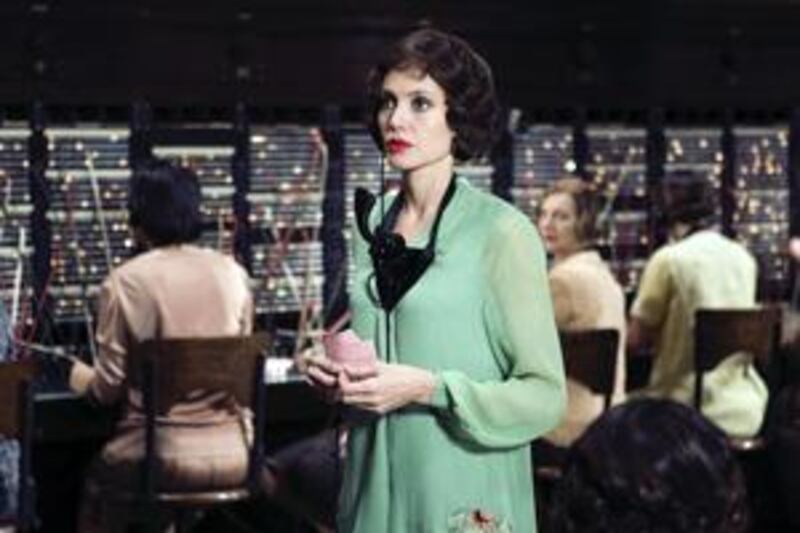Now in his late seventies, Clint Eastwood shows no signs of slowing down. The first of two films he directed last year, Changeling is the more serious and, most likely, the more Oscar-friendly of the two. While the forthcoming Gran Torino (in which Eastwood also stars) is an entertaining and provocative riff on his star image in the light of changing times and his own old age - not to mention a film that it is impossible to imagine anyone else carrying off - Changeling is relatively self-effacing: a factual historical drama set in Los Angeles a couple of years before Eastwood's birth: 1928.
Angelina Jolie stars as Christine Collins, a working single mother who leaves her son Walter home alone one Saturday, then returns from working overtime to find that he has vanished. Five months later, the Los Angeles Police Department contacts her with miraculous news. The boy has turned up, safe and well, hundreds of miles away. Christine is escorted to pick him up at the station in the company of the city's press corps - only the boy who steps off the train is not Walter.
"Don't make a scene," the detective in charge of the case insists. "You're in shock. A boy changes in five months on the road. Take him home and see?" Christine does take him home but this boy is not her son and she realises she cannot live with the lie. If the case is closed she may never see Walter again. To her horror, though, the LAPD refuses to budge. It's a case Franz Kafka or Joseph Heller might have written. When the poor mother starts to kick up a fuss, the police have her committed to an asylum. To prove her sanity, the doctors ask only that she acknowledge the boy who is not her son.
In the Dirty Harry films, Eastwood was a champion for law and order, a supercop who may have thrown away his badge, but only in disgust at legislation that made it impossible to put the bad guys where they belonged. (In the morgue, mostly.) Changeling, on the other hand, is a stinging critique of unfettered police power and the patriarchal attitudes that underpin it. If it seems a stretch to think of Eastwood as a feminist, it is worth remembering that he directed Hilary Swank to an Academy Award defending a woman's right to punch her weight in Million Dollar Baby. In fact he has regularly cast strong, smart actresses in his films; women such as Marcia Gay Harden, Frances Fisher, Diane Venora, Sondra Locke and Laura Linney.
Angelina Jolie may be the most formidable of this list. Her red lips virtually the only burst of colour in a pale, desaturated palette, she dominates the screen. "Never start a fight but always finish it," she tells her son early on, and you can believe that she walks the walk. Yet there might be an argument for a less self-possessed actress in the role. Someone like Amy Ryan, for instance, who plays Carol Dexter, another victim of the LAPD psychiatric wing. After all, for some unknown reason Christine Collins - in life and in the movie - initially accepts the boy into her home. It hardly seems feasible, unless on some subconscious level this woman wonders if a substitute child might be better than no child at all? There's no hint of that kind of need in Jolie's rigorous and accomplished performance, and it's not a mystery that Eastwood sees fit to dwell on. This may be a mistake.
Even in a relatively sober, old-fashioned account, this true story incurs a surfeit of heavy-duty melodrama: electric shock treatment; an alleged axe murderer; not one trial, but two running concurrently. If it didn't come straight from the newspaper archives you would have to say it is all too much. Changeling is a terrific story, but there's something overly simplistic in the way the movie divides the world into good and evil. Not for the first time, Eastwood indulges a weakness for a long, leisurely coda, and the movie loses some of its sting as a result. Strangely, he also neglects to tell us that even though top LA policeman James "Two Guns" Davies (Colm Feore) lost his job over this scandal, he was back in charge only a few years later.





